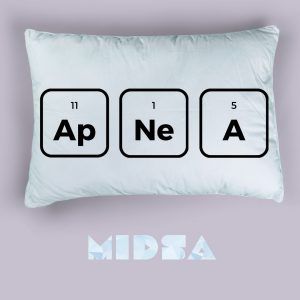
Sleep apnoea is a potentially serious sleep disorder. in which breathing stops and restarts repeatedly.
Apnoea occurs when the muscles in the back of the throat relax. These muscles support the soft palate, uvula, tonsils, side walls of the throat and tongue.
When your muscles relax, your airways narrow or close and you can't get enough air, which can lower the level of oxygen in your blood. Your brain senses that you can't breathe and causes you to wake up briefly to breathe. It's usually so brief that you don't remember it. This pattern may be repeated 5 to 30 times or more every hour, all night long, making it difficult for you to rest.
The symptoms The most common are:
- Loud snoring
- Episodes where you stop breathing during sleep (which is signalled by someone else)
- Gasping for breath during sleep
- Waking up with a dry mouth
- Morning headache
- Problems falling asleep (insomnia)
- Excessive daytime sleepiness (hypersomnia).
- Difficulty paying attention when awake
- Irritability
Sleep apnoea can lead to severe consequences as:
- High blood pressure or heart problemsThose who breathe through the mouth for decades, and the sleep apnoeas are prolonged day after day, there comes a time when the heart cannot withstand the effort and a heart attack occurs. This is because each apnoea is followed by a violent tachycardia and a respiratory disorder.
- Fatigue during the day
- Type 2 diabetesIf you suffer from sleep apnoea, you are more likely to develop insulin resistance and type 2 diabetes.
- Sleep deprivation of your partner
- ETC
If you think you may have sleep apnoea, consult us. At MIDSA with the HBTC-RFA Method treatment we can help you with your problem, and prevent heart problems and other complications.

